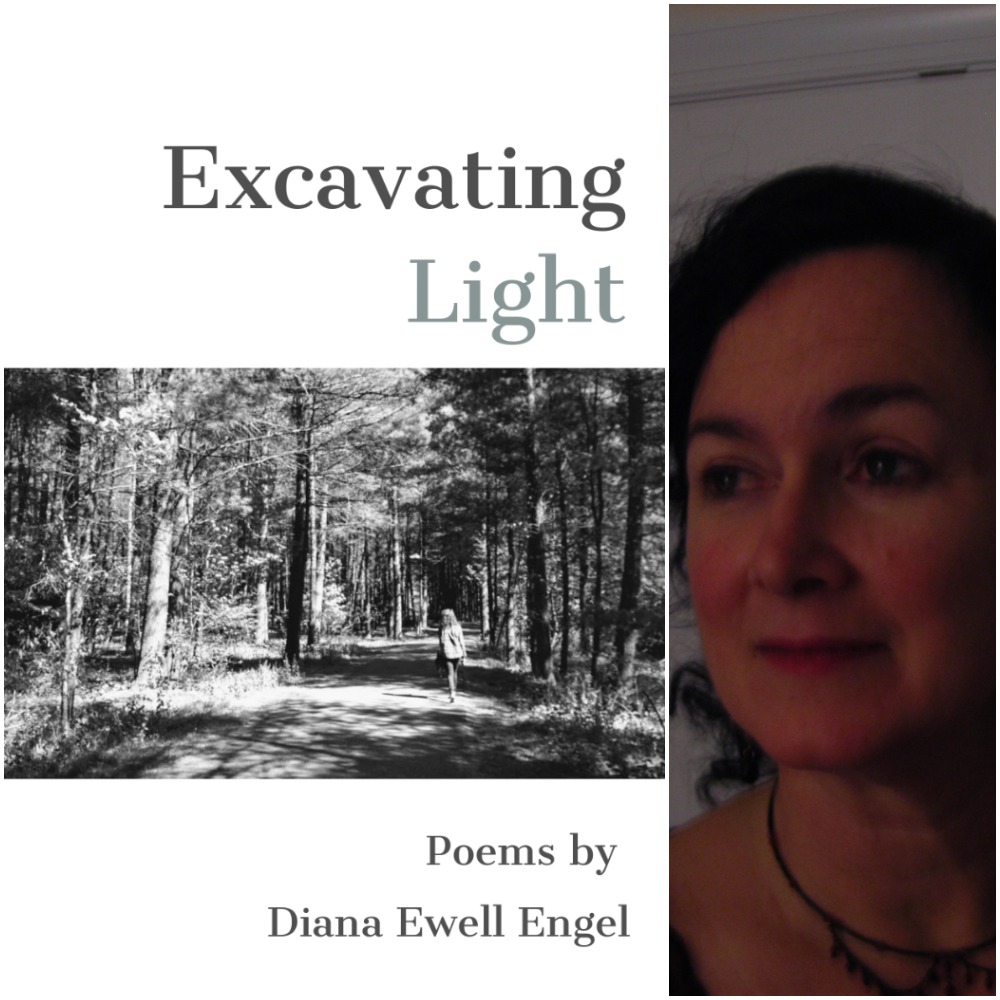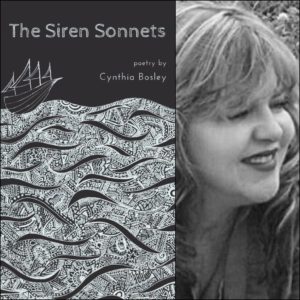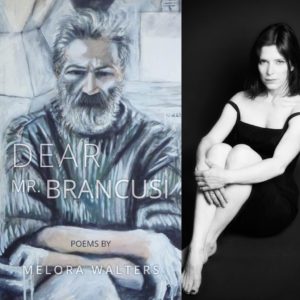Diana Ewell Engel’s poems are above all lyrical, subtle in sound and rhythm. They offer well-wrought steps to view earthly joys and challenges, and also spiritual ground, where the reader can meet spirits and memories. The personal tone of each poem allows the reader to enter artistic “morning,” to envision the “faint vista hovering / after the dark hours, // on the edge of day.” This is hard-won poetry of honest emotion, all the more resonant and sweet in its silences, cacophony, and lyrical loveliness.
–MARILYN KALLET, Knoxville Poet Laureate, Professor Emerita, University of Tennessee, author and/or editor of eighteen books, including seven books of lyric poems, the most recent being How Our Bodies Learned, 2018.
In Diana Ewell Engel’s Excavating Light, the natural world—a “bruised sky,” “a frozen tundra of warrior trees, / their branches unsheathed,” the “ruby blur” of a cardinal “buffeted by storm / grasping feeder perch”— is conjured through sensory evocations that are both rooted in concrete reality and laden with unforced, metaphorical resonance. Poem after poem in this excellent collection casts a sensitive but unsentimental light on what is lost and what abides as our vulnerable humanity is impacted by “nature’s changing course untrimmed.”
–MARK SMITH-SOTO, editor/associate editor of International Poetry Review at the University of North Carolina, Greensboro for over twenty years, author of three prize-winning chapbooks; the full-length poetry collections Our Lives Are Rivers, Any Second Now and Time Pieces; Fever Season: Selected Poetry of Ana Istarú; and his lyrical memoir, Berkeley Prelude.
From the very first poem in which shells offer “some cryptic warning” to the final poem when the poet is free to sing fully, the “landscape of light” that Diana Ewell Engel explores in Excavating Light casts memory and nature into sharp focus so that each poem becomes a message of solace to the reader. The pain of life is present here, but also the balm that careful attention brings.
–JANET LEE WARMAN, Professor of English and Education, Elon University, author of Lake Diving






Kathy Goodkin –
In “Tide Table,” the impressive first poem of Excavating Light, the speaker recalls her mother’s advice about the ocean: “Never fight it./ Swim with the current.” This moment appropriately sets the tone for a book that explores the gravity of memory. Like the speaker considering the multiplicity of the ocean, Excavating Light manages at once a sense of nostalgia and one of urgency. It is the book’s common thread, and one that works remarkably well to draw the reader through poems that explore the experience of memory in vivid, sometimes unexpected images, and resonant language.
It’s important to note that memory doesn’t only belong to an individual. Greater human and cultural memories shape this collection, too, in such poems as “Witness Trees,” which considers the plight of Afghan refugees in Serbia, and “Bonsho,” in which an elderly woman is moved by the sound of temple bells.
Far from saccharine, the speakers in these poems ask the reader to engage with a wide spectrum of sublime and painful experiences. In a poem called “Grief,” the speaker describes the eponymous emotion:
Drips into mouth,
hot salt curling tongue.
I’ll sluice it into a dish
to rise like steam from cocoa…
This image is unexpected and arresting, and pushes the reader to a visceral understanding, possibly even a redefinition, of the experience of grief. It is aided in its success by the sibilance embedded in the lines, which is soft and seductive even as the poem considers one of the most difficult experiences of human consciousness.
Throughout the book, Engel’s carefully crafted lines shape the poem’s pacing, so that the reader can spend time with each image while still wanting to continue reading. It is this tension between stay and go, nostalgia and urgency, that makes the collection engaging and compelling; it will stay with the reader long after the book is closed.
Steve Cushman –
Diana Ewell Engel’s Excavating Light is a super debut collection, full of quiet personal poems about family and nature and the poet’s place in that natural world. Engel lets you in close with poems that can break your heart and lift you up all in a single page, such as Broken Cradle, about her many miscarriages. Many of the poems here feature her family at the beach or in the woods and Engel’s skillful interplay between the two helps create this whole, this connection between family and nature and what it has meant to her. Read this collection for a glimpse into this traveller’s life, but trust me you’ll see a little of your life as well. I know I sure did.
Bill Brown, author of 11 poetry collections –
Diana Ewell Engel’s powerful poems in Excavating Light teach us that there can be no love without eventual sorrow and loss. From her father’s books that still speak with her of his life’s love of the spiritual and his early death, to the aging gait of her mother’s slow steps on a beach she taught her children to freely love. Speaking to her father in one poem, Engel says “what did we know of death/until you died/ and we became seagulls/ winging through morning/ searching for the bright to fill us…” In this collection, memory itself is a form of light, “Grief” turned in to hot cocoa, a crescent moon, “Forest Language” of joy remembered. Engel’s marvelous poems, lyrical and image rich, teach us to mine life for light and purpose in a world too often filled with emotional quandaries and darkness.